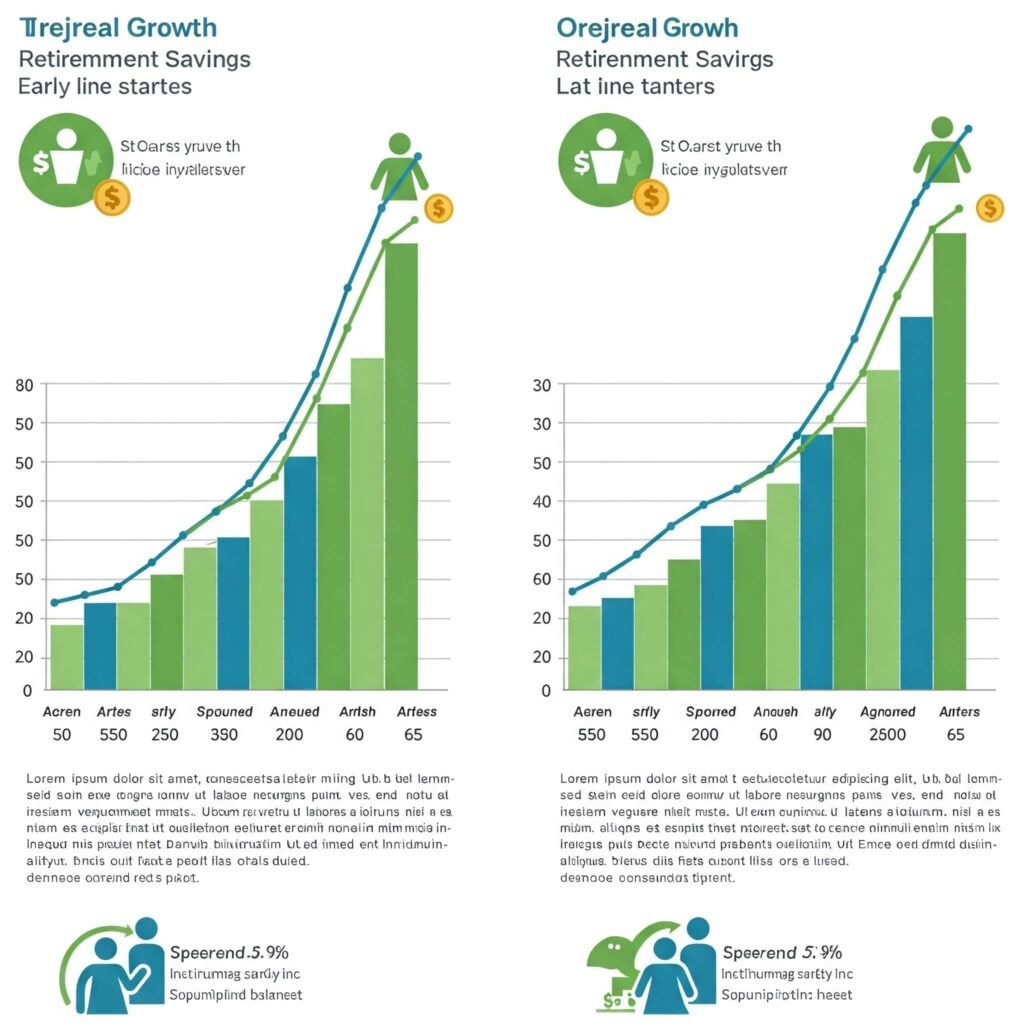Planning for retirement is one of the most critical steps you can take to ensure a secure and comfortable future. However, financial planning for retirement is fraught with pitfalls that can derail even the best intentions. From underestimating expenses to neglecting investment diversification, these mistakes can have long-lasting consequences. In this article, we’ll uncover the top 10 mistakes to avoid when planning for retirement and provide actionable tips to help you stay on track.
Why Financial Planning for Retirement Matters
Retirement planning isn’t just about saving money—it’s about creating a roadmap for financial independence. According to a Federal Reserve study, nearly 40% of Americans feel unprepared for retirement. Avoiding common mistakes in financial planning for retirement can mean the difference between a stress-free retirement and financial uncertainty.
Mistake #1: Starting Too Late
The earlier you begin financial planning for retirement, the more time your savings have to grow through compound interest. For example, Sarah, a 25-year-old who invests $200 monthly at a 7% annual return, could have over $500,000 by age 65. Waiting until age 35 could reduce that nest egg by nearly half.
- Actionable Tip: Start saving now, even if it’s a small amount. Use tools like NerdWallet’s retirement calculator to set goals.

Mistake #2: Underestimating Retirement Expenses
Many underestimate how much they’ll need in retirement. A common rule of thumb is to replace 70-80% of your pre-retirement income. However, unexpected costs like healthcare can inflate this number.
- Actionable Tip: Create a detailed retirement budget, factoring in inflation and medical costs. Review it annually.
Mistake #3: Ignoring Inflation
Inflation erodes purchasing power over time. At a 3% annual inflation rate, $50,000 today could be worth half in 25 years. Neglecting this in financial planning for retirement can leave you short.
- Actionable Tip: Invest in assets like stocks or inflation-protected bonds to hedge against inflation.
Mistake #4: Over-Reliance on Social Security
Social Security benefits may only cover a fraction of your retirement needs. For many, it’s about $1,500 monthly—far from enough for a comfortable lifestyle.
- Actionable Tip: Visit the Social Security Administration website to estimate your benefits and plan additional income sources.

Mistake #5: Failing to Diversify Investments
Putting all your money in one stock or asset class is risky. Diversification spreads risk and improves returns over time.
- Actionable Tip: Work with a financial advisor or use low-cost index funds to build a balanced portfolio.
Mistake #6: Not Accounting for Healthcare Costs
Healthcare is one of the biggest retirement expenses. A 65-year-old couple may need $300,000 for medical costs, per Fidelity.
- Actionable Tip: Consider a Health Savings Account (HSA) for tax-advantaged medical savings.
Mistake #7: Withdrawing Savings Too Early
Early withdrawals from retirement accounts like 401(k)s can trigger penalties and taxes, reducing your nest egg.
- Actionable Tip: Keep an emergency fund to avoid dipping into retirement savings.

Mistake #8: Neglecting Tax Planning
Taxes don’t disappear in retirement. Withdrawals from traditional IRAs or 401(k)s are taxable, which can eat into your savings.
- Actionable Tip: Explore Roth accounts for tax-free withdrawals or consult a tax professional.
Mistake #9: Not Reviewing Your Plan Regularly
Life changes—like marriage, job loss, or market shifts—require adjustments to your financial planning for retirement.
- Actionable Tip: Review your plan annually or after major life events.
Mistake #10: Going It Alone
Retirement planning is complex, and DIY mistakes can be costly. A financial advisor can provide tailored guidance.
- Actionable Tip: Research advisors through platforms like NAPFA to find a fiduciary who puts your interests first.
Conclusion: Secure Your Future with Smart Planning
Avoiding these 10 mistakes in financial planning for retirement can set you up for a financially secure future. Start early, diversify investments, and seek professional advice to navigate the complexities of retirement planning. Ready to take control? Begin today with a single step, like calculating your retirement needs or scheduling a consultation with a financial advisor.










































